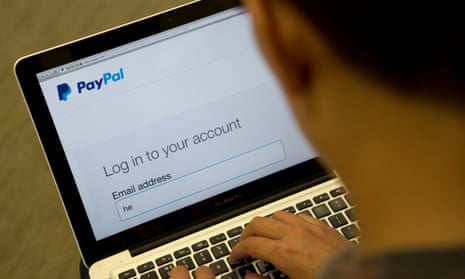PayPal has been accused of letting problem gamblers spend up to £150,000 a day, prompting concerns that addicts are using the online payment system to circumvent bank limits.
MPs and gambling experts called for the company to be more responsible to stop people racking up huge debts that could force them into bankruptcy.
The Department for Digital, Culture, Media and Sport (DCMS) said the Gambling Commission could consider payment providers as part of its review of gambling on credit cards.
Henrietta Bowden-Jones, a psychiatrist who founded the NHS’s only specialist gambling clinic, said: “The first time I ever heard about a gambler using PayPal to pay for online gambling occurred about two weeks ago in clinic, when a young man came accompanied by one of his parents. The patient was 20 years old, with no savings.
“He had been online gambling, had reached his limit on his bank card but somehow managed to withdraw by direct debit £2,000 every few minutes to continue gambling whilst his parents were asleep next door,” Dr Bowden-Jones said. “When they woke up the next day, he had lost £150,000.
“I was horrified when I heard that this had been a legitimate use of PayPal.”
PayPal said it was “extremely concerned” to hear the service was being misused to fund “excessive online gambling”. It added that it had reviewed controls and was tightening rules around payments.
Tom Watson, the deputy Labour leader, said companies such as PayPal needed to be “more responsible in identifying problem behaviour and stopping gamblers racking up huge debts through their service”.
Liz Carter, a gambling therapist, said a woman came to her clinic about online gambling debts. “She said she did not feel like she was spending money, it was just like gambling credits,” Carter said.
Stephanie Bramley, a research associate at King’s College London, said she had heard of instances where students “essentially try to conceal their gambling behaviour from student support staff by transferring their student loans into PayPal and then using this as a method for payment for gambling”.
PayPal allows people to transfer money to anyone with an email address. It works because the PayPal account is tethered to a bank account or credit card. People can also use a PayPal debit card to make purchases or withdraw money from a cash machine.
If someone has a PayPal balance of zero, or not enough to cover the cost of something, the remainder will be taken from their bank. If there is no account associated, a debit or credit card will be charged instead.
Matt Zarb-Cousin, a spokesman for gambling reform and co-founder of Gamban, an app that blocks gambling websites, said: “If you buy something through PayPal, it does not come out of your bank for 48 hours. There is a lag and that lag is what Henrietta was talking about with the 20-year-old patient. The fact he had spent money he did not have.”
Mark, 44, said he was a compulsive gambler and had heard of people who spent excessively through PayPal.“PayPal has no limit on it with regards to gambling, so it won’t recognise previous transactions made until it’s too late … It’s a nightmare,” he said.
In December, Barclays became the first high street bank to allow customers to block payments with certain types of retailers in an effort to give people struggling with addictions more control over their spending.
Lloyds, Royal Bank of Scotland and Santander have also said they are exploring ways to support customers who are problem gamblers, although they do not have timeframes for the introduction of payment-blocking tools.
The Gambling Commission is launching a review into gambling with credit cards, which could lead to regulatory action, the government has warned.
Asked whether it would broaden the scope of the review to include online payment providers, a DCMS spokesperson said: “The Gambling Commission’s forthcoming call for evidence on gambling using credit cards will welcome wide-ranging submissions, in order to develop a more comprehensive understanding of associated risks.”
Watson said: “Problem gambling is this country’s hidden epidemic. Gamblers are being enabled to rack up thousands of pounds of debt gambling online with far too few checks.”
A PayPal spokesperson said: “We cannot comment on individual cases. However, we are urgently looking into these reports and take them very seriously.
“Our team has already reviewed the controls we have in place to identify and block problem gambling, and changes have been made to tighten the rules that govern these payments.”
